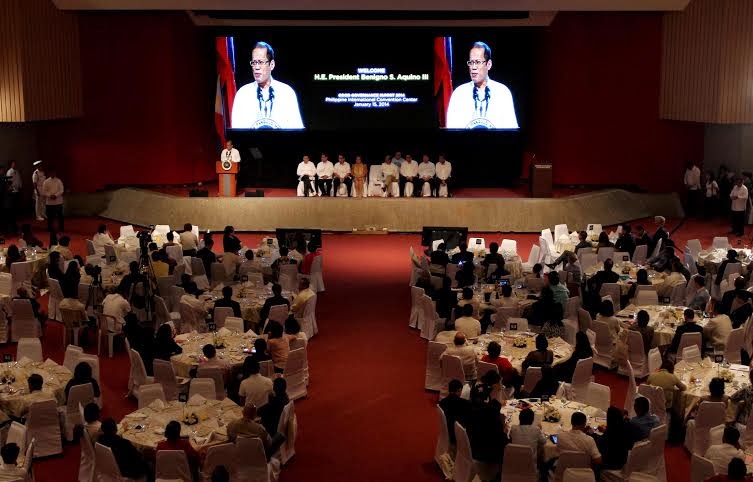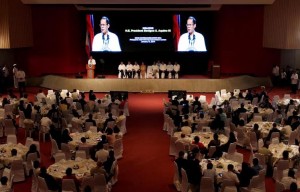
MANILA (Mindanao Examiner / Jan. 15, 2014) – The Philippines on Wednesday opened the Good Governance Summit in Manila where President Benigno Aquino and his administration marked the country’s successes in governance reform.
The summit drew many of the country’s key stakeholders in good governance and gathered champions of reform in both the public and private sector, as well as leaders in the development industry, civil society and members of the academe.
Local and international experts in government transparency, public procurement, and members of the public will likewise comprised the event’s speakers and participants.
“The Summit is not just a celebration of the progress we have so far made in instituting transparent, accountable, and participatory governance. More crucial is its forward-looking approach, where we look at the challenges of bureaucratic reform square in the eye—as daunting as they are—and use our experience in the previous four years to overcome these same challenges.”
“While it’s true that we’ve accomplished much in our campaign to reform government, so much still remains to be done. The Good Governance Summit is essentially an expression of our continuing readiness and commitment to effecting fruitful transformation in the Philippine bureaucracy,” Department of Budget and Management Secretary Florencio Abad said.
Some highlights of the event included the ceremonial turnover of the Cashless Purchase Card as well as the official launch of Open Data Philippines.
The Cashless Purchase Card program is a joint effort between the Aquino administration and Citibank, through which the government’s financial transactions will be made entirely through electronic means instead of cash or checks.
The Cashless Card will function in much the same manner as a corporate credit card, which government employees and offices can use for their procurement needs.
The launching of the pilot phase of the Cashless Purchase Card system will be implemented across three agencies – the DBM, the Department of National Defense, and the Armed Forces of the Philippines.
“The bureaucracy’s dependence on petty cash and checks for various official purchases has unfortunately made many of our financial transactions prone to abuse and corruption. The Cashless Purchase Card will strike at the root of these irregularities by allowing government to enter into transactions through purely electronic means, and within a system that’s updated in real-time, easy to monitor, and completely trackable. Best of all, it makes the subsequent auditing and accounting process much quicker, easier, and more transparent,” DBM Undersecretary and Chief Information Officer Richard Moya said.
Meanwhile, Open Data Philippines will be the single and comprehensive portal for government data, with more than 400 data sets spanning all departments and agencies made accessible to the public through http://wwww.data.gov.ph.
“The official launch of Open Data Philippines underscores the exact same spirit of openness and participative governance that President Aquino’s reform agenda is founded on. With hundreds of data sets now accessible to anyone with an internet connection, the public can now take a better look at government data and subject them to closer scrutiny. Are government agencies fulfilling their targets? Are we spending public funds properly so that basic services are promptly and efficiently delivered?”
“The information in Open Data Philippines can help answer these and many other questions, and we believe that the accessibility of this information will help spur public engagement further, so that more and more Filipinos will become our partners in instituting lasting reform,” Presidential Spokesperson Edwin Lacierda said.
Other highlights in the event included the presentation of results of the 2013 Annual Enterprise Survey on Corruption, the presentation of the Seal of Good Local Governance, and the presentation of Public Financial Management Reforms under the Aquino administration.


